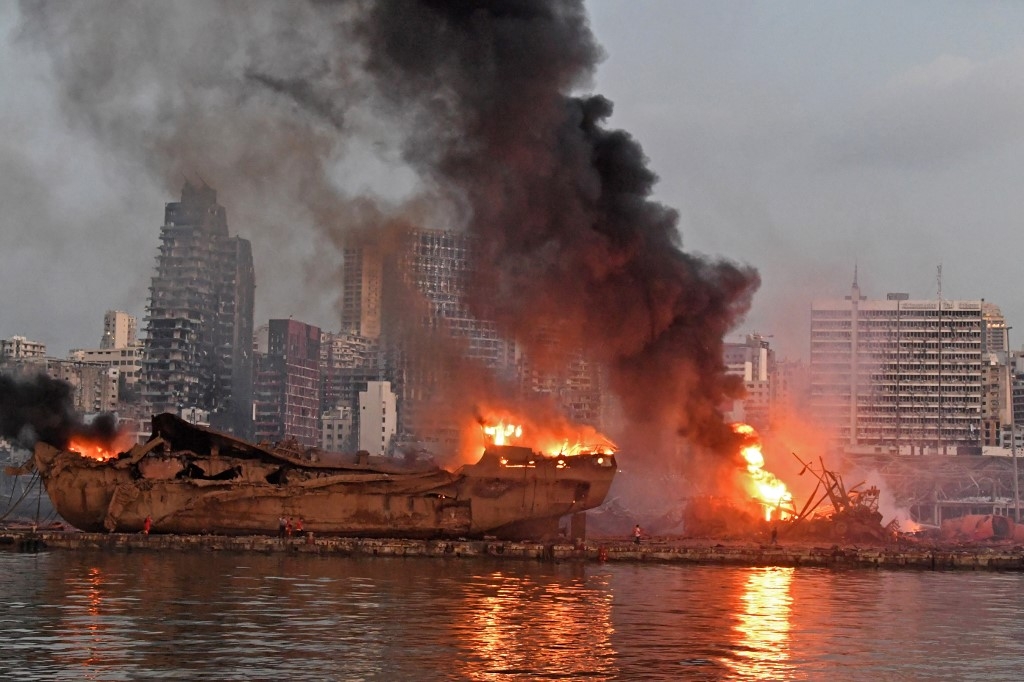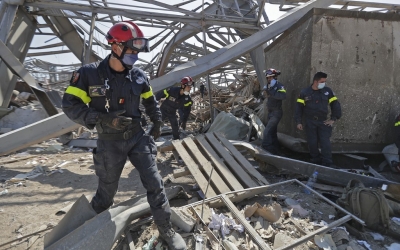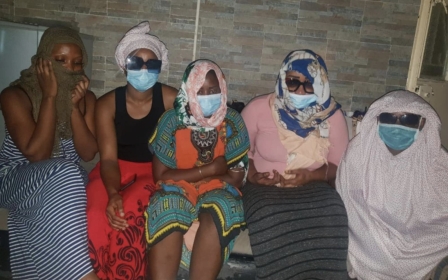Beirut explosion: Lebanon judge issues two new arrest warrants over blast

A Lebanese judge leading investigations into Beirut's port blast issued two new arrest warrants on Friday, according to a judicial source that spoke to the AFP news agency.
"The investigating judge, Fadi Sawan, continued his investigations... and today issued two arrest warrants," the source said.
According to the official National News Agency, the subjects of the warrants are Beirut's customs authority director, Hanna Fares, and Nayla al-Hajj, an engineer contracted for maintenance work at warehouse 12, where the explosion took place.
The 4 August blast, which the authorities say was caused by more than 2,000 tonnes of ammonium nitrate that had been unsafely stored at the port for years, killed at least 181 people, injured more than 6,500, ruined entire neighbourhoods and left 300,000 homeless.
Lebanon has launched an investigation into the disaster, which many have blamed on official negligence and corruption.
President Michel Aoun has said a probe will look into whether the cause of the blast was negligence, an accident or "external interference".
So far, arrest warrants have been issued for six of the 25 people currently facing lawsuits over the blast, including Beirut Port Director-General Hassan Koraytem and Customs Director-General Badri Daher.
The blast has fuelled anger at Lebanon's ruling politicians, who were already facing criticism over a financial meltdown that has sunk the currency, demolished the value of savings and left depositors unable to withdraw their money.
Some Lebanese doubt the authorities can carry out a proper investigation and say foreign countries should intervene.
While authorities have rebuffed widespread calls for an international probe, Lebanon's investigation is being aided by foreign experts, including from the US Federal Bureau of Investigation. France, which counted among the dead several of its citizens, has launched its own inquiry.
Middle East Eye delivers independent and unrivalled coverage and analysis of the Middle East, North Africa and beyond. To learn more about republishing this content and the associated fees, please fill out this form. More about MEE can be found here.





